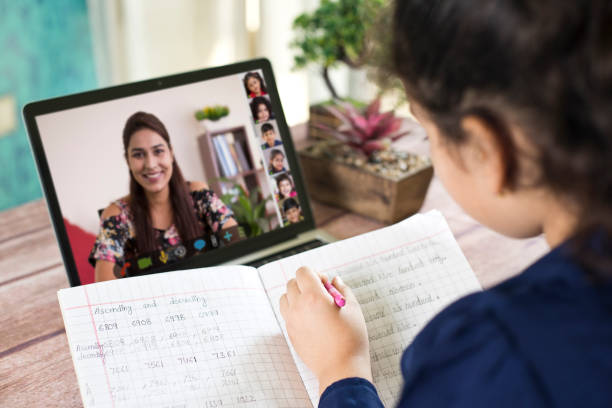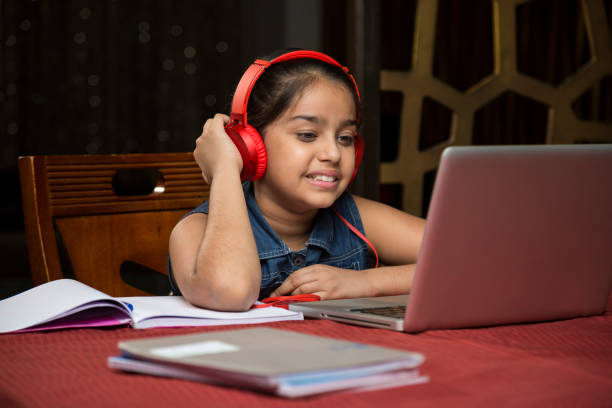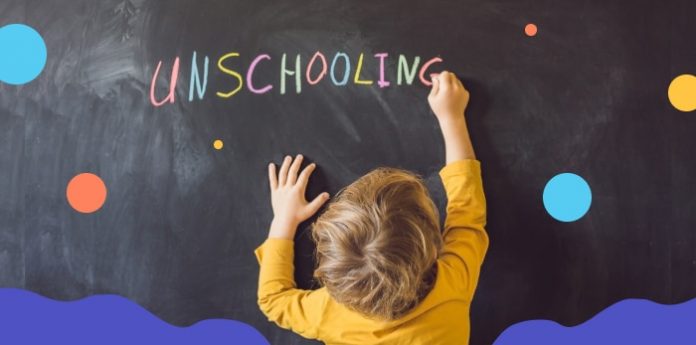“What we want to see is the child in pursuit of knowledge, not knowledge in pursuit of the child.” – George Bernard Shaw.
Do you want your child to pursue knowledge that they desire? Or do you want them to pursue the knowledge that schools want?
Math & ELA | PreK To Grade 5
Kids see fun.
You see real learning outcomes.
Watch your kids fall in love with math & reading through our scientifically designed curriculum.
Parents, try for free Teachers, use for free
As a parent, seeing your child pursuing knowledge of desire will give you immense pleasure. Seeing your little one interested in learning and exploring new things can make you happy too.
That’s why the unschooling concept is getting a lot more popular lately. It focuses on the fact that children are born curious. So, when they are given the right environment, they can learn independently.
Related Reading: Best & Important Character Traits for Kids That All Parents Must Instill
Curious about unschooling? Let’s explore the topic in-depth.
What is Unschooling?

Unschooling is a style of homeschooling. It is often called child-led learning, as children pursue their interests independently without the teacher’s supervision.
In unschooling, parents step into the teacher’s role to watch and guide their children to follow their interests. Instead of a preset curriculum, students are given supportive surroundings to stimulate their natural curiosity about everything.
Many scholars believe that curiosity can drive students to learn without a formal school structure.
Unschooling is not a new concept. American educator John Holt first developed it in 1977. He even founded the magazine Growing Without Schooling to promote homeschooling.
Later on, Sandra Dodd, an educational writer and speaker, took the unschooling concept further and developed the Radical Unschooling philosophy. And today, the unschooling concept is being explored and nurtured every day.
Pros of Unschooling

1. Free Learning
Kids get a chance to learn and grow based on their unique interests, learning pace and personalities. They don’t have to spend 12 years learning what schools want them to study.
2. Motivational Learners
Unschoolers don’t learn because they have to. They learn because they want to. They are curious about the chosen subjects. That means your kids will complete their worksheets independently without your constant reminder.
3. Focused Learning
Unschooling lets parents monitor their child’s progress and plan curriculum as per their performance. If you find your child excelling in the selected subjects, you can raise their difficulty level to expand their learning programs.
4. Sets Responsibility
When your child self chooses subjects, it will also develop a sense of responsibility and accountability in them. It makes your children conscious about their own decisions and education.
5. Community Support
In unschooling, students can learn via interacting with others rather than sitting in a classroom. They become more expressive and comfortable interacting with others and pick some social skills.
Related Reading: Best Learning Activities for 2-Year-Olds Every Parent Must Try Once
Cons of Unschooling

1. Information Gap
Children are still children. They don’t know which subjects are helpful for better career growth. So, there is a possibility that your children might end up selecting the wrong subjects, leading to slow career advancement.
2. Parental Commitment
Unschooling demands a massive commitment from parents. Parents always have to be aware of their child’s growth and new resources to capture their child’s interests. For working parents, unschooling is a difficult task.
3. Self Motivators
Not everyone can motivate themselves to set a learning routine. Many people perform better under pressure and in a structured environment. Thus, ensure your child is a self-motivator before going down the unschooling road.
How to Start Unschooling?

Do you want to un-school your child? You can start the process as follows:
1. Determine Your Child’s Learning Type and Pace
First, determine what type of learning material better engages your child-like visual, audio, or physical stimulation. Also, understand how long it takes your child to learn new things independently. You can plan an unschooling curriculum for your child based on this knowledge.
2. Foster Curious Environment
Unschooling is an environment where students get curious to learn. So, your role as a parent is to foster an environment that stimulates natural curiosity among your child. For example, you can take your child to the zoo to make them curious about animals.
3. Talk with Other Unschoolers
It would help if you made your child interact without other un-schoolers to understand whether they are cut out for unschooling or not. You can also interact with parents of un-schoolers to know where you can find resources and guidance to help your child un-school.
4. Create a Curriculum Carefully
Unschooling is free learning without any grades or formal subjects. But if your child plans to pursue a particular career, let’s say medical, you need to add some formal subjects to your unschooling curriculum. Thus, you should sit down with your child and help them choose subjects carefully based on their future goals.
Unschooling Tools for Parents

Have you decided to un-school your child? In that case, first, equip yourself with the following tools—
- Get a computer system and a stable internet connection for extensive research.
- Purchase some unschooling books to understand the concept like Unschooling Rules, The Unschooling Unmanual, Learning All the Time, Free to Learn, etc.
- Explore unschooling websites such as Unschool Rules, Learning is Freedom, Radical Unschooling, Living Joyfully, etc.
- Introduce your child to self-learning portals like SplashLearn, Minecraft Homeschool, Typing for Kids, Starfall, etc.
Related Reading: What is a Homeschool Co-op?
Let’s Start Unschooling Now!
Not many people are on board with the unschooling concept because it is less explored and cuts all traditional education norms.
Thus, we suggest parents first learn and explore unschooling and then slowly introduce it to their children. Instead of taking your kids out of school, try to practice unschooling at home for some time. If the results are in favor, you can fully un-school your child.
FAQs
Is unschooling legal?
Homeschooling is legal in all 50 states. However, each state has different laws regarding homeschooling structure. Thus, you have to check with your homeschooling department to know whether unschooling is legal in your area or not.
What is the difference between unschooling and schooling?
- Schools have classes with subjects, unschooling is free learning.
- Schools have teachers and preset curriculum, unschoolers self teach themselves.
- In schools, students learn from books or specific learning material. Unschoolers learn from different things like traveling, talking, meeting new people, etc.
- Students in school learn to follow instructions. Unschoolers learn via thinking and make their own decisions.
























